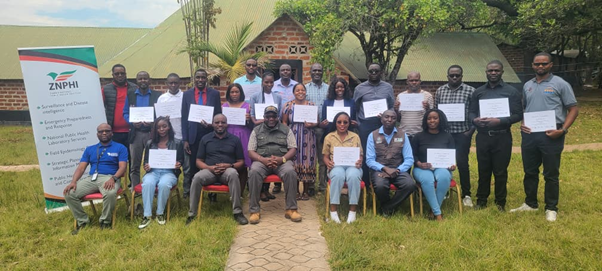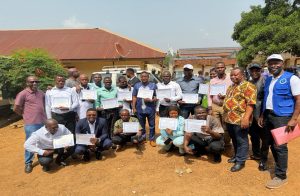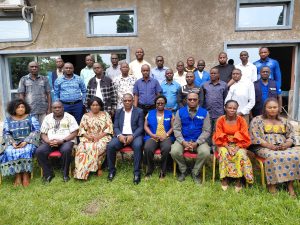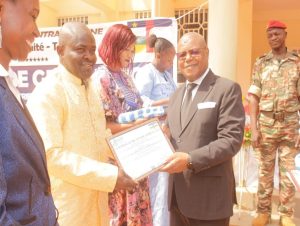Graduation of the 30th Cohort of the Frontline Field Epidemiology Training Program under the Global Fund
-
by
AFENET

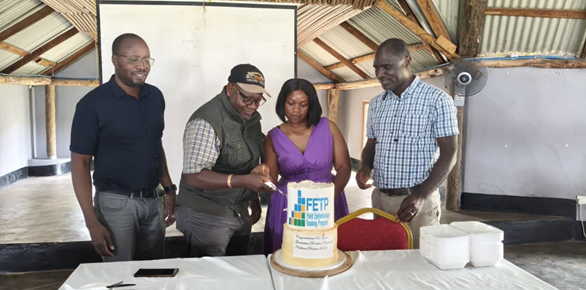
Key Highlights from Northern Province, Zambia
The Zambia National Public Health Institute (ZNPHI), in collaboration with the Ministry of Health and the Global Fund, proudly marked the graduation of the 30th cohort of health workers trained in the Applied Basic Epidemiology Course, which commenced in April 2025. This milestone is part of a broader national initiative, with multiple cohorts trained across the country.
Since its inception in 2015, the Frontline Field Epidemiology Training Program (FL-FETP) has equipped 635 frontline health workers with essential epidemiological skills, thereby strengthening Zambia’s capacity for disease surveillance and outbreak response. As one of the flagship capacity-building initiatives under the Zambia Field Epidemiology Training Program (ZFETP), the FL-FETP plays a central role in building resilience at district and community levels.
The graduation was attended by esteemed public health leaders, including:
- Ernest Mutale– Provincial Health Director, Northern Province Health Office (PHO)
- Nyambe Sinyange– Director, Workforce Development Cluster & Country Lead, Zambia FETP (ZNPHI)
- Ernest Kateule– Program Coordinator, ZNPHI
- Westeber Kambinga– Provincial Epidemiologist, Muchinga PHO
- Kennedy Salipako– Provincial Epidemiologist, Northern PHO
- Wallace Luhanga– Provincial Surveillance Officer, Northern PHO
Keynote Address – Dr. Nyambe Sinyange
In his keynote, Dr. Nyambe congratulated the graduates, emphasizing the vital role of FETP in empowering district-level health workers to detect, investigate, and contain outbreaks promptly.
“If FETP enables someone at district level to investigate, report, and contain an outbreak, it means we are indirectly preventing it from spreading to other provinces—and ultimately safeguarding national and even global health security,” he stated.
He reiterated ZNPHI’s commitment to ensuring:
- One trained epidemiologist per 200,000 population (intermediate/advanced level).
- At least five FL-FETP-trained officers per district, specifically in surveillance, outbreak investigation, and response.
Dr. Nyambe further stressed the importance of data-driven outbreak investigations, urging graduates to rely on quantitative evidence—such as attack rates and multivariable analyses—rather than assumptions. He underscored the need to transform investigation findings into actionable insights, shared widely through ZNPHI bulletins, conferences, and publications.
Remarks – Professor Ernest Mutale
Professor Mutale commended the 21 graduating participants for their resilience and dedication. He described their achievement as a landmark for Northern Province and acknowledged the indispensable support of the Global Fund and ZNPHI in building local public health capacity.
He highlighted that skills gained in surveillance, outbreak investigation, data analysis, and rapid response are not theoretical but practical tools that will save lives. He urged district health directors, medical officers, surveillance officers, nurses, and laboratory staff to apply evidence-based practices and work collaboratively to strengthen the province’s epidemic preparedness.
Professor Mutale reminded graduates that their work is the frontline defense of Zambia’s health security, bridging local communities and the national response. Quoting an African proverb, he concluded:
“He who saves a life, saves the entire community.Reflections – Mr. Kanyalu Siame (Graduate Representative)
Speaking on behalf of Cohort 30, Mr. Siame described the training journey as one of growth, resilience, and service. He acknowledged the challenges faced—ranging from difficult terrains to emerging health threats—yet highlighted the cohort’s ability to persevere through teamwork, mentorship, and community engagement.
He extended gratitude to the Ministry of Health, ZNPHI, facilitators, mentors, families, and friends for their unwavering support. Mr. Siame reminded his peers that graduation is not the end but a renewed responsibility to remain vigilant in surveillance, respond rapidly to outbreaks, and uphold evidence-based decision-making.
He concluded by urging his colleagues to continue serving as ambassadors of public health, committed to integrity, resilience, and saving lives.
